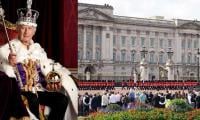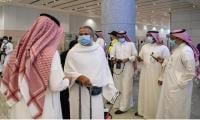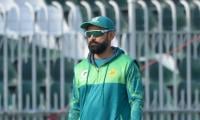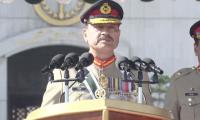The Kaptaan’s electoral ambitions from 1996 onwards understandably led to an upsurge in the use of cricket terms to describe the moves and counter-moves in Pakistan’s turbulent politics.
Nobody paused to reflect that politics is certainly not cricket, which was reputed to be a gentleman’s game. In terms of sports, our politics could relate more to boxing than cricket, allowing for all sorts of punches – even those below the belt.
Looking at the evolving state of the political game, December 24 proved to be a turning point with the two political dynasties in Punjab and Sindh receiving powerful blows by the justice system, promptly claimed by the ruling party as their victory. Round one to the PTI you might say. Meanwhile, propaganda battles are raging with the government and the PPP and the PML-N trying to convince the public about the soundness of their respective stance.
The December 24 judgment against Nawaz Sharif and the looming trials of Asif Zardari mean a moral victory for government spokespersons who continue to proclaim corruption as Pakistan’s No 1 problem. The prime minister wrote on his Twitter account that he was “puzzled and perplexed by those who, despite having read the two reports were defending the plunderers”. He does not seem to think that it’s only round one and there are fourteen more to go. Let’s concede that corruption indeed may be the number one problem. Then where do you place the daunting challenges posed by water scarcity, climate change, killer pollution, overpopulation, the pathetic condition of public health and education sectors etc? Besides, life must go on.
For those living in the splendid isolation of Islamabad, a trip to Lahore is a good way of getting a feel of Pakistan’s realities. It is the annual wedding season there and the first thing to be noticed is that the 10pm curfew is holding. Momentary blackouts remind the hosts and the guests of the impending shut down. Things move slowly but simple buffets are over by 9.30pm and though hordes of relatives and friends scurry for group photos with the bride and the groom, somehow the two are led from the stage to the exit with a minute or two to spare. Will Karachiites also learn – one day – from this brisk wedding routine of Lahore?
TV screens are omnipresent and that is nothing unusual except when you cannot find a specific popular news channel on your TV if you live in a certain part of the city. That is a reminder of the fact that a channel or two are not allowed to be aired in a few places, depriving a large segment of the educated population of a major source of information and entertainment. Will someone please look into this anomaly sometime soon?
Family reunion over, time to venture out to the motorway through The Mall rather than accessing it from the Ring Road or the canal. Crossing a long series of traffic signals in the heart of the city, it becomes obvious why Lahore is second only to Delhi as Asia’s most polluted city. Most Lahoris now live and breathe the dust and smoke suspended in the air around them. As you move towards the old circular road before reaching a parched River Ravi, the quality of air gets worse and the traffic more chaotic.
Usually a Lahori driver would breeze through the yellow light and zooms if the traffic signal had just turned red. No more, as electronic cameras record every violation of the rules and the erring drivers get a fine notice at home. Over 400,000 people have been delivered notices already and motorcyclists are under watch as well. The two-wheeler machos have been reined in by the compulsory use of helmets. Well done Lahore traffic police for making the roads safer for citizens. May it also discourage reckless and even unnecessary driving, a cause of growing air pollution. May they next turn their attention to smoke-belching vehicles.
December 24 happened to be the judgment day in Nawaz Sharif’s case but the ten million Lahoris went about their daily challenges of survival, and came to know only in the afternoon that the PML-N founder was handed another conviction and prison term. The next day was a public holiday and the people seemed to be in the grip of political discussions as televised polemic becomes the most flourishing business along that of shaadi halls and beauty parlours.
It looks that the prosecution, conviction and appeal process may take years. In other words, there is no express accountability process and the PTI leaders would do well to tone down their rhetoric against corrupt rulers, and leave matters largely to the judicial process and the news media. Nor can the government convince the masses of its welfare plans by showcasing simplicity and austerity. Can the premier ponder over the possibility that the common citizen is less keen to know about saving public money and more anxious about how much the government is willing to spend on their welfare?
That brings us back to those challenges of governance which are largely missing from the PTI’s narrative. The setback suffered by the party in the local polls of Karachi has shown that the government’s priorities of accountability and austerity do not match the common man’s aspirations for clean water and jobs. Imran Khan has shown no interest in reaching out to the people, and stays cloistered in all kinds of huddles where he uses every opportunity to tutor all and sundry.
The people do not want tutorial sessions but actions with tangible results like public projects which can lift economic activities and provide jobs.
Email: saeed.saeedk@gmail.com
People stand in line up as election officials check their ballot papers during voting general election at a polling...
Women show their voter identity cards as they stand in a queue before casting their votes in Agartala. — PTIThe 18th...
Former prime minister Imran Khan. — Instagram/ imrankhan.ptiAn old saying has it that “when you dance with the...
Kashmiris in Indian illegally occupied Kashmir protesting against the Indian occupation as the forces of India looked...
A representational image showing residents walking at a wholesale market in Karachi. — AFP/FileOnce again there is...
A representational image showing late Pakistani human rights activist and Supreme Court lawyer Asma Jahangir. —...







